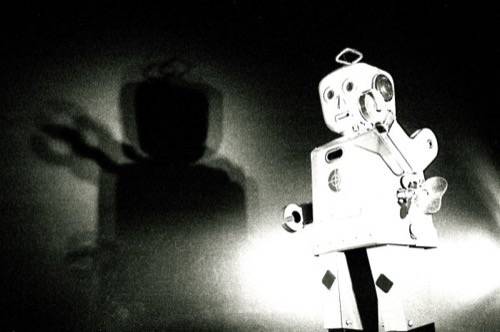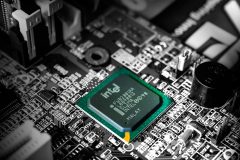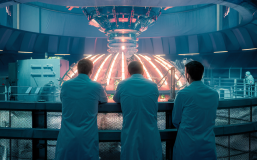Robot usage in the global manufacturing industry has been climbing steadily since 2009, the MIT Technology Review reports.
Sourcing World Robotics, the U.S. Bureau of Labor Statistics, and the OECD, MIT found that robotic worker purchases increase every year. However, a closer look at the numbers indicates that robots aren’t taking jobs directly from human counterparts.

In Europe (except Germany), the numbers show that robot usage is up and human employment is down. In America, Germany, and South Korea, however, robot usage and human employment are up. It’s less an indication that robots are replacing people than evidence that German, American, and Korean cars are in demand. After all, the MIT research indicates that the automotive industry has embraced robots more so than any other industrial sector.
It’s hard to tell, but here’s a theory: when the economy is bad and sales are down, increased efficiency from robots keeps struggling auto industries afloat. When the economy is good and sales are up, robots and people both increase in number to meet demand. Robots require maintenance and oversight from humans, so if anything, more robots ought to mean more people when the economy demands it.
See also: Jibo’s Cynthia Breazeal: Why We Will Learn To Love Our Robots
Cynthia Breazeal, a former MIT Media Lab researcher who has gone on to create personal robot assistant Jibo, says the idea of robots stealing human jobs is an outdated one.
“There’s a knee-jerk reaction from the past about robots trying to replace people and take away jobs. But in reality that’s not quite what happens,” she said. “With any new technology, they take over the jobs that people don’t necessarily want to do anyway, and they create new jobs. They empower people to do more interesting work.”
Breazeal cited Race Against the Machine, an academic book about the way robots are transforming human employment. Instead of looking at robots as soulless usurpers, we should see them as tools designed by humans to help humans live—and work—better:
I think we need to do a better job communicating this new, more enlightened philosophy: robots are supplementing what people do. They’re meant to help support us and allow us to do the kind of work that humans in particular find much more interesting and much more fulfilling because humans are creative, humans do things that machines don’t. It’s really about teamwork.

















